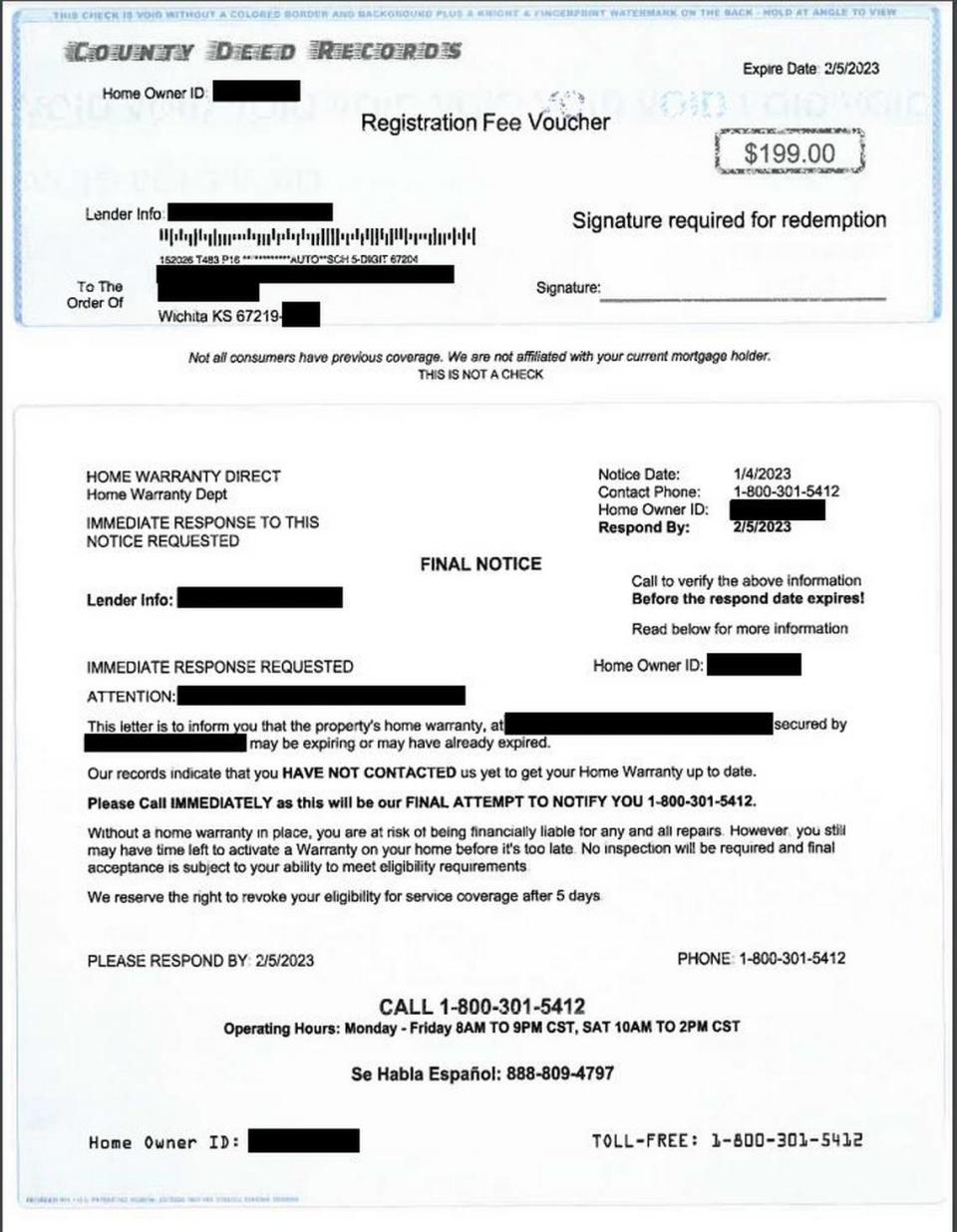Did you get an unsolicited $199 ‘check’ in the mail? Don’t fall for the scam, DA says
Officials are warning Sedgwick County residents about unsolicited scam mail that looks like it came from the county recorder of deeds office.
The letters, received by several residents in January, contain what looks like a $199 check that purports to be a “Registration Fee Voucher” from “County Deed Records.”
The checks, which aren’t real and say so in small type, are attached to an urgent-looking “final notice” from Home Warranty Direct telling homeowners that their home warranty has expired — or is on the brink of expiring — and urges them to call the included toll-free number “immediately” or risk “being financially liable for any and all repairs.”
The letters contain legitimate details about homeowners that is available in public records, including their names, addresses and mortgage lenders.
But they are no more than a ploy “to convince the recipient to sign up for a home warranty,” according to a Monday news release from the Sedgwick County District Attorney Marc Bennett’s Office.
The letters are “neither associated with the Sedgwick County Recorder of Deeds nor authorized by Sedgwick County government,” the release says.
The DA’s Office said the toll-free phone number in the letters appears to be connected to a company that received an F rating from the Better Business Bureau. Homeowners in other states, including Tennessee, Vermont and Utah, have received similar letters, the DA’s Office said.
If you’ve received this mail, “avoid falling for the scam” and report it to the Sedgwick County District Attorney’s Office Consumer Protection Division at consumer@sedgwick.gov, the release says.
“Never give out personal information over the phone to anyone you do not know. Letters that use language to appear urgent or threatening are almost always a scam and try to get you to act without doing research.”

